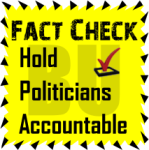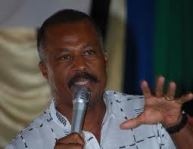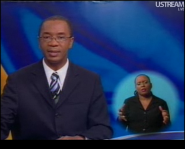There are several questions being raised in the current climate as it relates to the future of CARICOM and the future of Caribbean regional integration. In some quarters it is felt that the momentum for regionalism is being swept aside. This is due to embedded insularities and the repeated failures by governments to implement agreed policies, and for regional agencies and institutions to demonstrate the requisite convergences. Prejudices and ignorance are assuming pivotal positions once held by a bond of resilience to oppression and exploitation
Moreover, it appears as though the legacies of colonialism remain riveted in the psyche of Caribbean people together with several fears and a pronounced lack of confidence in each other. These are the saddest and currently exhibited aspects that frustrate our post-colonial development. How do we as Caribbean peoples weave together the various pieces of the Caribbean fabric that traditionally have been kept separate and fragmented? In this article, I contend that political symbols are sufficient to reengage the imagination of Caribbean people so that the consequence of such an engagement culminates in the re-building of a spirit of CARICOM unity and solidarity.
Political symbols are emblems of group life. The potency of symbols rests not simply in their ability to represent, but in their ability to instigate action (Rebecca E. Klatch 1988). The Caribbean, and in particular CARICOM as an institution, needs symbols because these are collective representations of group life. Symbols can represent the common aspects of our social and political membership as a community of sovereign states. Symbols also evoke strong feelings of identification and belonging. Therefore, symbols may act as forces of integration, creating solidarity by binding individuals together into a unified whole for which we understand to be the upkeep of CARICOM.
With the subtle discontent that appears to be manifesting itself in the everyday discourses across the Caribbean, and specifically on the issue of migration and free movement of community nationals, it becomes more pressing that the social pillars of CARICOM be raised to levels that take into consideration moral and ethical signatures. These serve to alleviate the restrictive adherence to strict legal measures whilst at the same time giving pre-eminence to the struggles of the ordinary people of the region.
A main claim that I make elsewhere argues that the process of securitisation on the free movement of community nationals creates barriers to deepening Caribbean regional integration. Rather than a desecuritisation of the issue of intra-CARICOM migration and movement of people that is more likely to lead to a deepening of Caribbean regional integration, there is the process of securitisation that creates barriers to deepening regional integration.
By security, I am speaking of the ‘intersubjective and socially constructed’ move that ‘takes politics beyond the established rules’ thereby framing for example the free movement of community nationals and intra-regional migration as a ‘special kind of politics or as above politics’. It is the creation of ‘unease into a more general existential domain’ in which individual political communities such as Barbados asserts that its functional integrity as a sovereign entity is under threat.
For example, The Prime Minister of Barbados labels the ‘influx’ of CARICOM immigrants and illegal migration a “crisis,” connoting a threat or emergency. This act stirs up or draws upon people’s fears, thereby creating the basis for acceptance of particular governmental actions – namely the introduction of a new amnesty policy directed at undocumented immigrants originating from within CARICOM.
Cast in these securitised terms, the intensified policy for enforcement in response to irregular migration creates a flashpoint for anxieties about CARICOM outsiders. The sentiment is that Guyanese, Jamaicans, and other neighbours from within the Caribbean Community are encroaching upon a vulnerable inside where the legitimacy of the state as a basis for sovereign expression and rule is at stake.
Irregular migration, by its very definition, is a reminder of the centrality of the state to prevailing notions of belonging. When state authorities act to punish and deter irregular migrants they reinforce a territorial account of belonging that confirms the sovereign status of the state and its citizens against unwanted external intrusions. This practice appears to be happening in Barbados notwithstanding Barbados’ treaty commitments and its often repeated ambitions for regional integration. On the one hand, there is an enunciation of a spirit of CARICOM through proclivity to support and facilitate the movement towards a single CARICOM market and economy. On the other hand, there are actions that come across as being far too selective and referred only at times of convenience.
Against seeming discriminatory practices, we continue therefore to walk a tight rope in relation to Articles 7, 8, and 9 of the Revised Treaty of Chaguaramas, not to mention Articles 32, 33, 34, 45, and 46. This argument is rooted in the distinctions made by certain Barbadian publics as it relates to Guyanese, for example, when seeking to close doors on intra-regional migration based on subtle discontentment. Yet the same publics allow a strengthening of passage for persons from third states that sit beyond the thresholds of CARICOM.
Is it not correct that the objectives of the Caribbean Community hinge upon premises of deepening regional economic integration, instilling functional co-operation, and redefining ‘functional relationships so as to enhance the participation’ for ‘improving the standard of living’ of the Caribbean peoples? My disgruntlement is not against Barbados or any other CARICOM member state, but it is against the ignorance that is allowed to perpetuate unchecked by the key political actors in the region.
If the declared ambitions as agreed upon in the Preamble to the Revised Treaty of Chaguaramas form the fundamental structure of CARICOM, then why are we bypassing the political symbols that can translate messages of harmony? Political symbols that are consistent with the spirit of the region’s peoples are building blocks for progress. Combined with expressed ambitions of the people, political symbols support the ‘demands for the intra-regional movement of people’ within the member states of CARICOM.
I end this article therefore by citing the Right Excellent and former Prime Minister Barrow of Barbados. In 1986 the National Hero of Barbados told a brief but fascinating story:
If we have sometimes failed to comprehend the essence of the regional integration movement, the truth is that thousands of ordinary Caribbean people do in fact, live that reality every day. In Barbados, our families are no longer exclusively Barbadian by island origin. We have Barbadian children of Jamaican mothers, Barbadian children of Antiguan and St. Lucian fathers. And there is no need to mention Trinidad which has always been tied to us not only by the inestimable bonds of consanguinity, but by the burgeoning cross-fertilization of cultural art forms. We are a family of islands nestling closely under the shelter of the great Cooperative Republic of Guyana. And this fact of regional togetherness is lived every day by ordinary West Indian men and women in their comings and goings.



















Wow poor Great.
You mean Lindsay Holder finally came to his senses on the illegal immigrants issue?
I don’t know if Lindsay Holder had a different opinion before but is it possible that there are differing and dissenting views within the BLP?
BU will reserve comment for a few hours on this matter. We pride ourselves on the ability to maintain reason on the matter of illegal immigration affecting Barbados and the region.
I must say Linsay Holder article may be long but it is a very “short” read. I wanted to read it and that made it short.
@Fairplay:
It is clear that Ricky Singh is advising Mia Mottley. Her statements and his writings say the same thing.
—————————————-
Where is your evidence FP? you may very well be right.
In the Nation Newspaper of Sunday, 28th September 2008 the following comments were attributed to Ricky Singh.
“Manage migration is quite acceptable particularly for small economies like Barbados. Freedom of movement (as in visitors) should not be confused with the freedom to live and work (immigration)
In the Nation Newpaper of Sunday 14th June 2009 the following comments were attributed to Mia Mottley.
“A hostile environment for immigrants must not be an unwelcome environment for Caribbean visitors. The focus must be simply who have arrived and who have never been documented . . .”
Can anyone remember which C’bean leader proposed a Caribbean Parliament or something along those lines? I think the idea of a single market and economy was actually first put forward by the same leader. By the way it wasn’t Owen Arthur.
How could someone soon to have a PHD write such a one sided argument? and be on the wrong side at that!!
He needs some BU learning.
I just want to reintegrate the old saying
‘come and stan ent come and live.’
If you illegal, you got to get deal with buddy,simple, the great USA takes the same stance up to this day.and them got lot of resources. wa to say bout lil Barbados
RD, not to mention, way he gone, anyway?!! Like e jes write it an jes disappear!!
Steupse!!
David got d time!!
I got 2 day jobs 199 so i cant be here to prove you wrong every day.
but i jin try.
wait doe in ent hearing you big mout in the blog bout The Media and Opposition Party On The Immigration Issue. 199 you illegal or wha?
you is a B?
Hi RD, no bro, that comment was directed towards the illusive Brafit!! 🙂 not u!!
Sorry, to hear uv got to do two jobs, bro!! I am strongly, apposed to this morally and in every way, unless it is something which you choose to do (say, just to earn some extra cash) as opposed to, something which you HAVE to do! What time r u supposed to have for family life!!
Cor bli’ey! RD, u can’t imagine how angry that makes me!! I’ve done 2 jobs too, but it was just to raise some extra dosh!! Not satisfactory at all!! Not at all!!
As fuh d immigration issue, I like to give my fren David a break from time to time!! U know e doan like me aready so I doan like tuh push e too hard!!
Yuh know me!!
Laaaaaaaaddddddddddddddd!!!! 🙂
But, as for my opinion, I disapprove of the Guyanese in Bim, in huge numbers, on d udda hand, I hear dat sum uh does women r quite nice!! so now I in suh sure!!
Laadddddddddddddddd!!!!
Please sen one fuh me!! No bro, I is a Bajee!! or, so duh tells me!!
Well i hear ‘re re’ got a GTmother if the mixes so nice i sugest we deport all the men and leff the women.
Bajan gene pool too small anyways.
The two jobs is fun and don’t even make up one. but i like all to so i gin stick wid them
RD, agree wid u about the women!!
Laaaadddddddddddd!!
Good luck with the jobs bro, as long as ur happy!!
R, u remind me of my dad!! I keep telling e, it’s not ‘all two’ but ‘both’!! It dun mek nuh difference!!
Laaaaaaaadddddddddddddddddd!!!!
R, agree with u about the need to widen the gene-pool!! A crucial matter which is why I don’t expect Bajan politicians to recognise it!!
@199 “R, agree with u about the need to widen the gene-pool!! A crucial matter which is why I don’t expect Bajan politicians to recognise it!!”
Why you so?? lol give the politicians a chance them might be listen to we all now, never know.
‘all two’ implies separate entities & two a dem is bajan talk, we dialect dyeing i doing my best to save it.
Yeah i notice the gene thing the hard way, i bring home a chick the other day and she did know my grandmother stupesssssss when we dig deeper we was related, and close too!!!!
But if we gin import genes let we import good ones. Any farmer knows good genes produce good results.
Hi RD, I agree with all the above bro!! Damned shame about the chick!! Must’ve been gut-wrenching!! Did n’t u feel tempted to say to her!! “well, we could always preten we din know”!! I tink if she was really hot, I might be tempted!! Afterall, wha nabody doan know doan bodda dem!!
Laaaaddddddddddddddddddd!!!!
R, u got a lot uh confidence in dem Bajee politicians man!! I doan c dum doing nutten suh much tuh give me nuh great confidence in dum but if u say so, then I’ll wait and see, me bro!!
Good luck with saving d dialeck R!! As yuh can see , I doing my little bit hay in Hinglen!!
Laaaaaaaaddddddddddddddd!!!!
I take the point about the farmer R!! Which genes do u think r good ones and we should import!! An R, fuh gawd’s sake!! Please doan say Jamaicans, or I doan know wha I gun do!!
R, fuh instance, duh got d people robbing tourists and the like in Boscobel Road and d police/politicians doan seem to be doing nutten so I caan have nuh confidence in dem man!!
How I wish I was PM uh Bim!! I would sort out dat place real quick!!